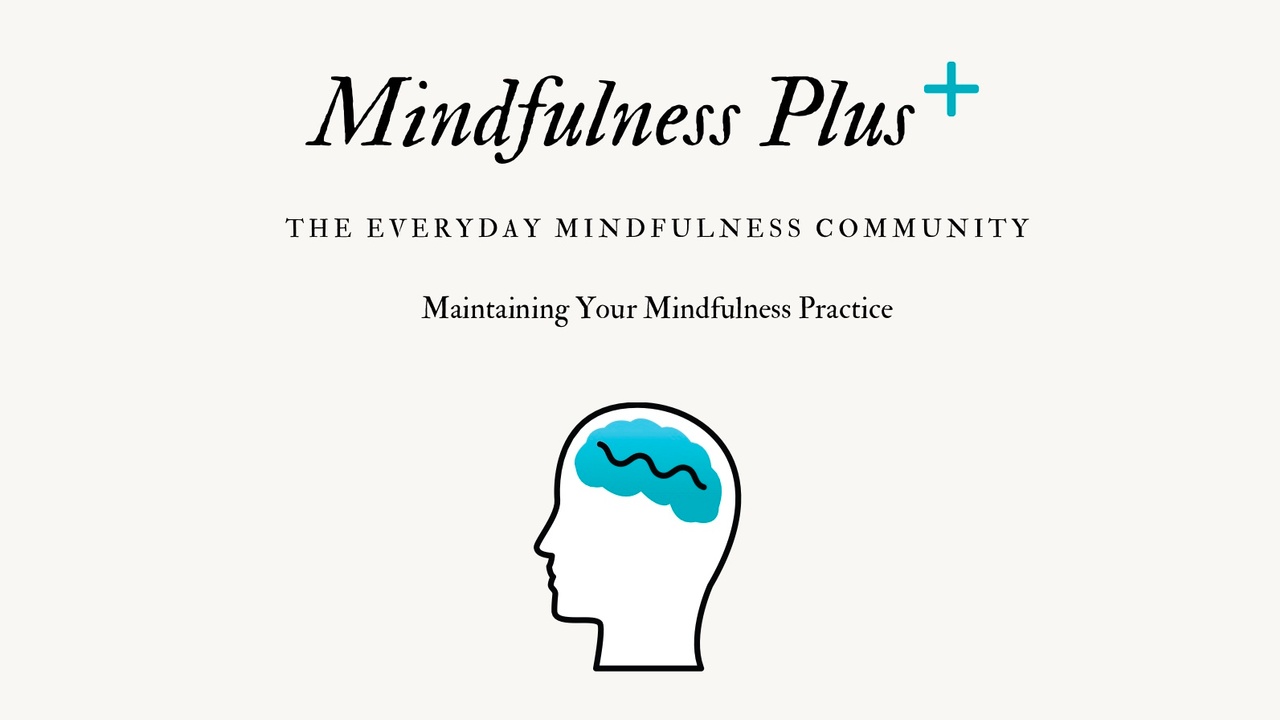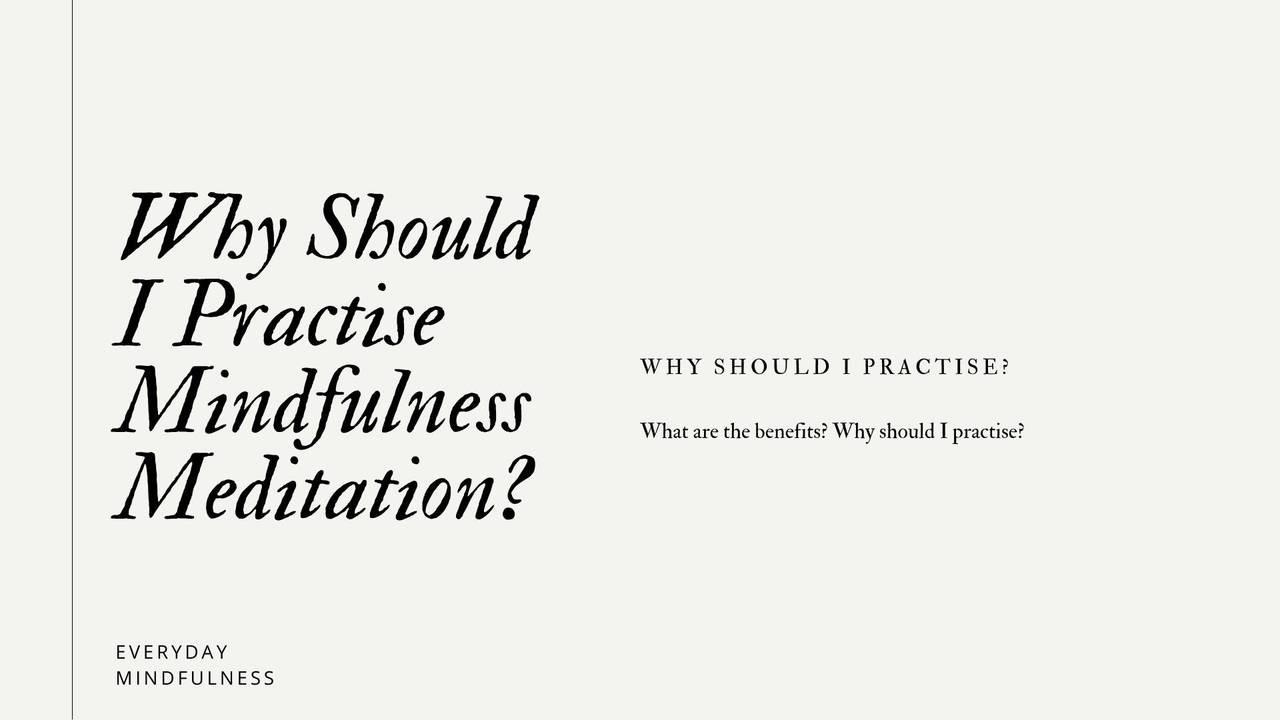Mindfulness News
Read about the benefits of mindfulness in everyday life. Find out more about our courses and latest news.
Join The Everyday Mindfulness Community

Next month, I am launching the new Everyday Mindfulness Community. This member-only space has been created to support your mindfulness practice with regular blog articles, meditations, Daily Mindfulness Practices, hints, tips and advice on how to keep going.
The Everyday Mindfulness Community is a space where you can ask questions, comment on posts and seek advice on how to maintain your mindfulness.
You don’t have to take a course to join the Everyday Mindfulness Community. So if you would like a quiet space to read, contemplate, meditate and get inspired, come and join us from next month.
Subscription: £10 for 100 days
Drop-In Thursday - Challenges We Face When Practising Mindfulness

|
Improving Focus With Mindfulness

|
Drop-In Thursdays Week 1

In the first of six drop-in sessions for Everyday Mindfulness course members, we began this week by examining the concept of mindfulness.
In essence, mindfulness is a form of attention training. Dr. Jon Kabat Zinn, often described as the Godfather of mindfulness, explains that it is a particular way of paying attention: On purpose, in the present moment, non-judgmentally (with kindness to yourself).
In these chaotic times, living alongside hope and ongoing anxiety, it’s worth considering how mindfulness might be able to help us navigate emotionally choppy waters.
In the session this week, I shared some thoughts from mindfulness teacher Barry Boyce who encapsulates the essence of the practice when he explains the following:
“The practices of mindfulness are not magic talismans that transform you upon touch. They are ingredients that get added to all the other parts of our life. And one of the nice things about mindfulness is that in bringing attention to details and to changes wi...
Everyday Mindfulness Drop-In Thursdays

Zoom details will be sent to Everyday Mindfulness course attendees. These sessions will run for the next 6-weeks from 8-8.30pm (UK time).
To find out more and to join the Everyday Mindfulness 8-week course, click here.
To access the course this month at the discounted price of £25 (RRP £99), click here.
Audible Launches Mindfulness at Work and Home

This week, Audible launched Mindfulness at Work and Home, which I narrated during lockdown earlier this year. I am really pleased to be able to share my book in audio form, particularly given its inclusion of guided meditations.
You can find out more and listen to a sample here.
Attention - What is It and How Do I Protect It in Times of Covid?

Last week, I was asked to name one of my personal heroes/heroines. Her name is Amishi Jha - she’s a neuroscientist and associate professor of psychology at the University of Miami.
Her work over the past decade has helped us to understand more about the brain’s ability to pay attention, the impact of stress and how to grow resilience. In particular, Professor Jha has spent years studying “the forces that degrade and weaken attention.”
In her recent article in Mindful magazine, Professor Jha explains that we are living in “Volatile, Uncertain, Complex, Ambiguous” times - a description she shortens to ‘VUCA‘. The pandemic has meant that we “are all living in VUCA conditions.” So if you have been feeling overwhelmed or unfocused, struggling with staying on task or overcome with emotion, she reassures us that we are not alone.
So what is attention? Jha explains that our attention system is like a flashlight. “It allows us to select and direct our brain’s computational resources to a s...
So What is Mindfulness?

Most of us have heard about mindfulness, but what exactly is it? And how could it help us to navigate troubled times? In this audio excerpt from Mindfulness at Work and Home, due for release later this month on Audible, I explain what it is and how to practise.
Take a few moments to tune in and find out more.
Click here to listen.
Mindful November

To celebrate the launch of the new 8-week Mindfulness online course, Everyday Mindfulness is offering a 75% discount code (£25, RRP £99.99) to law students, pupil barristers and trainee solicitors until the end of the month.
This brand new 8-week online course explains how to practise mindfulness and start experiencing its many benefits.
Ideal for beginners, the course is packed with weekly videos, audio-guided meditations, lectures, hints and tips on how to practise mindfulness. Each week, a new theme is explored to explain how mindfulness can make a difference to your daily life. From feeling less stressed to having more self-compassion, from managing your inner critical voice to improving your ability to focus – to name just a few.
If you would like to receive your 75% discount code, subscribe to Everyday Mindfulness and email Gillian at everydaymindfulness@gillianhiggins.co.uk to request your link.
Take a Peek at the New Everyday Mindfulness 8-Week Online Course

In the lead up to the launch of the Everyday Mindfulness website, you can now watch my video seminars from the first two weeks of the new 8-week online course. Simply click here to take a look.
Each week, you will learn how mindfulness can help you to feel less stressed, reduce your anxiety, improve your focus, grow your self-compassion and enjoy a greater sense of well-being. You will explore different benefits of mindfulness from managing your inner critical voice to improving your ability to focus, from boosting your resilience to managing conflict.
To find out more about the course, visit the website and get in touch for corporate and personal discounts.